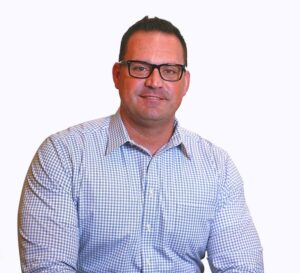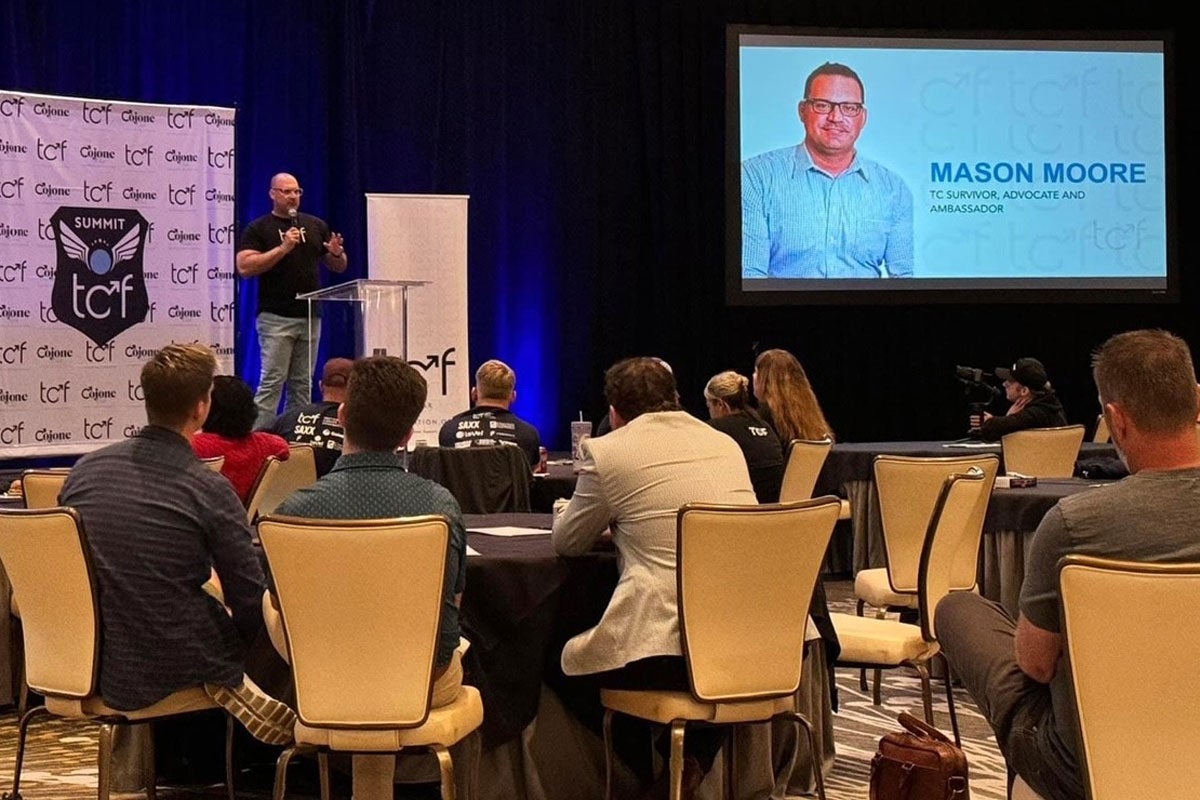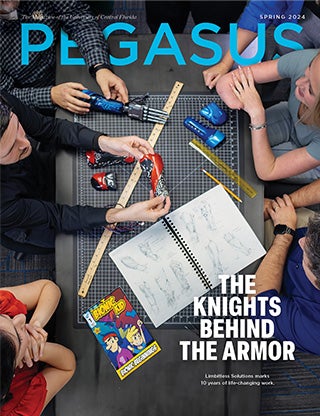Health services administration alum Mason Moore ’97 has created a new fund to expand research and awareness programs on testicular cancer at the College of Health Professions and Sciences. Himself a three-time testicular cancer survivor, Moore has become an avid advocate for men’s health and wellness both in the community and across the nation.
Moore was first diagnosed with testicular cancer in January 2003, just two weeks before his wedding. He was examining himself in the shower when he noticed a lump on his testicle. Soon after his discovery, Moore visited his primary care physician and a urologist who identified and confirmed the diagnosis — testicular cancer.

According to the American Cancer Society, testicular cancer is rare, but is the most common malignancy in men ages 15 to 39. If caught early, it is highly treatable and curable.
Moore successfully completed treatment and spent the next five years under surveillance comprised of frequent monitoring, doctor check-ups and self-examinations.
Following his experience, Moore became active in the cancer community, working to encourage men to take ownership of their health and to practice routine self-examinations. He joined with the Livestrong Foundation to lobby elected officials for increased funding to the National Institutes of Health and the National Cancer Institute. In 2013, he joined the National Speakers Bureau for Testicular Cancer Foundation where he speaks to local groups about testicular cancer and how men can play an active role in their health.
“As men, we were always taught to just tough it out, and as a result, we don’t make our health a priority.”
“As men, we were always taught to just tough it out, and as a result, we don’t make our health a priority,” Moore says. “It’s about learning your body and learning what’s normal and what’s not.”
It was while serving as a speaker one day at UCF that Moore had the opportunity to meet Associate Professor Michael Rovito in the Department of Health Sciences. Rovito’s research investigates testicular self-examination, testicular cancer, male health behavioral change, intervention and instrumentation design and health communication. Rovito is also the founder and chairman of Male Wellness Collective, a nonprofit dedicated to promoting healthy behaviors among men while advancing the academic and scientific fields of men’s health.
“As I got to know Dr. Rovito and talk with him more, I learned about the things he does through the male wellness collective organization he started and his focus on male wellness as a whole,” Moore says. “It seemed like a natural fit to create a fund with the college.”
In February 2018, Moore experienced a sudden onset of pain in his upper right abdomen while at a professional networking event.
“I thought to myself, ‘OK, Mason. You speak to groups about the importance of men making their health a priority. What do you need to do in this case?’ And so, I did something that I’d never done before in my life,” Moore says.
With the pain only becoming more severe, he drove himself to the emergency room.
At the hospital, doctors identified a nodule on Moore’s right lung. It was originally diagnosed as lung cancer, requiring surgical removal of the middle lobe of his right lung. Unfortunately, during follow-up surveillance less than a year later, a new nodule was discovered. After further testing, it was determined that this, along with the previous recurrence, was related to the testicular cancer he originally had in 2003 — a recurrence 15 years later, something highly unheard of with testicular cancer.
Moore completed a successful chemotherapy treatment along with additional lung surgery in May 2019.
April is Testicular Cancer Awareness Month, and 2024 will be Moore’s five-year mark of being cancer-free.
April is Testicular Cancer Awareness Month, and 2024 will be Moore’s five-year mark of being cancer-free. Moore hopes his fund will support research and awareness programs on testicular cancer at the college as well as bring more focus to the mental health aspects of the disease.
“There’s been very little discussion, if any at all, around the mental and emotional stress that’s created by going through something like this,” Moore says. “Not just when you hear the diagnosis or when you go through treatment, but post-life as a survivor, and the fears and anxiety that goes along with that. That’s an area of specific focus for me as I continue to advocate.”
Moore has served on the UCF Alumni Board and the Advisory Board for Nicholson School of Communication and Media since 2020, and this year was appointed to the Dean’s Advocacy Board in the College of Health Professions and Sciences.





